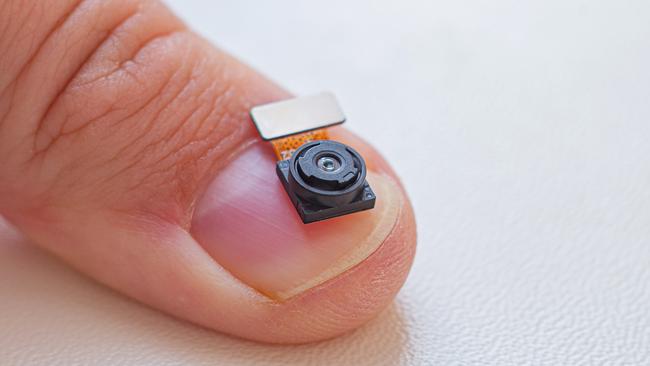Universities warned by ASIO on menace of foreign spies
ASIO has told universities to hire security escorts for foreign scientists and academics, and keep gifts out of high-security zones to safeguard research from espionage.

Australia’s spy agency has told universities to hire security escorts for foreign scientists and academics, and keep gifts out of high-security zones to safeguard research from espionage.
The Australian Security Intelligence Organisation has issued universities with advice to “protect your research’’, warning that spies are targeting cutting-edge technologies in the military, medical, engineering and biotechnology fields.
In the wake of a controversy over foreign interference allegations at the Australian National University this week, The Weekend Australian can reveal that ASIO has issued all universities with detailed instructions for shielding science and technology research from foreign spies.
“Even legitimate academic engagement with partners can cause damage to the national interest and present a national security threat,’’ ASIO’s guidelines state.
“This is particularly the case if the research or data relates to dual-use technology or military capability.’’
ASIO warns that “foreign powers may attempt to interfere with any academic activity they see as threatening their interests’’.
“They may try to shape academic inquiry, language, or course content to reflect their preferred narratives and silence dissenting views,’’ its guidance states.
Universities are warned that spies can pose as academics, industry figures, journalists or members of think-tanks in a bid to steal research secrets.
“Be alert to the threat and recognise the value of the information and access you hold,’’ ASIO’s advice states.
“Require your staff – particularly those who work on critical or dual-use technology or on politically sensitive topics – to regularly declare any foreign affiliations or financial interests that could compromise their work.’’
ASIO advises universities to provide security escorts for foreign visitors and delegations to sensitive research areas or laboratories – even when they go to the bathroom or have a smoke.
“Be aware of attempts to add or substitute visitors – such as translators – at the last minute,’’ it states.
“When delegations try to bring an unannounced visitor, late notice substitute or extra member, this person may be an intelligence officer.
“Ensure that delegates are escorted at all times: to and from meeting rooms, bathrooms, dining facilities and smoking areas.
“Foreign delegates have been known to attempt to insert USBs into computer systems to extract information and introduce malware,” the spy agency warns.
ASIO has told universities to ensure that any gifts are kept out of sensitive work areas, noting that “gifts from foreign delegations have been used to conceal recording devices’’.
The federal Education Department is investigating whether the ANU has complied with the federal government’s foreign interference guidelines, in light of allegations made by a defence scientist this week.
The researcher, working on sensitive national security research, has accused an ANU academic with Russian ties of seeking help to procure a government security clearance.
The researcher had warned of the potential for foreign interference at the ANU, which collaborates with Australia’s defence and intelligence agencies as well as Chinese institutions.
The academic, who has ties to Russia, has denied the allegation.
The researcher has cut ties with the academic and insisted his work be supervised by someone with an Australian security clearance.
But ANU transferred the work to another academic, who trained at a Chinese university flagged by the Australian Strategic Policy Institute as having links to the Chinese Communist Party and Chinese defence industries.
The government gave $8.3m in grants last year to the ANU, which hosts a Co-Lab with the Australian Signals Directorate, a Defence Institute and collaborates with the Australian Army Research Centre.
The ANU has rejected the researcher’s persistent requests for whistleblower protection.
However, the Education Department has told universities they should accept anonymous reports and set up encrypted messaging or email for reporting.
It says universities should allow staff to report issues on behalf of students and should “implement a protocol for responding to reports made by third parties’’.
The Education Department’s guidelines for countering foreign interference require universities to have “clear risk assessment and reporting frameworks available to all staff and students’’.
It requires “due diligence” to be conducted on research partners, university staff and students who are at risk of foreign interference.
University staff and students should be asked if they are receiving any financial support for education or research activities from another country, the guidelines state.
They should be asked if they hold a paid or unpaid position, or have honorific titles, from any foreign university or company.
The final question to be asked is: “Are you associated or affiliated with a foreign government or foreign military, policing or intelligence organisation?’’







To join the conversation, please log in. Don't have an account? Register
Join the conversation, you are commenting as Logout